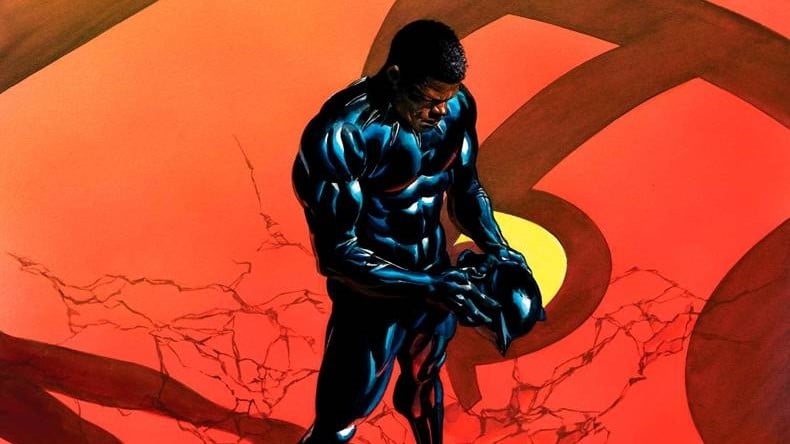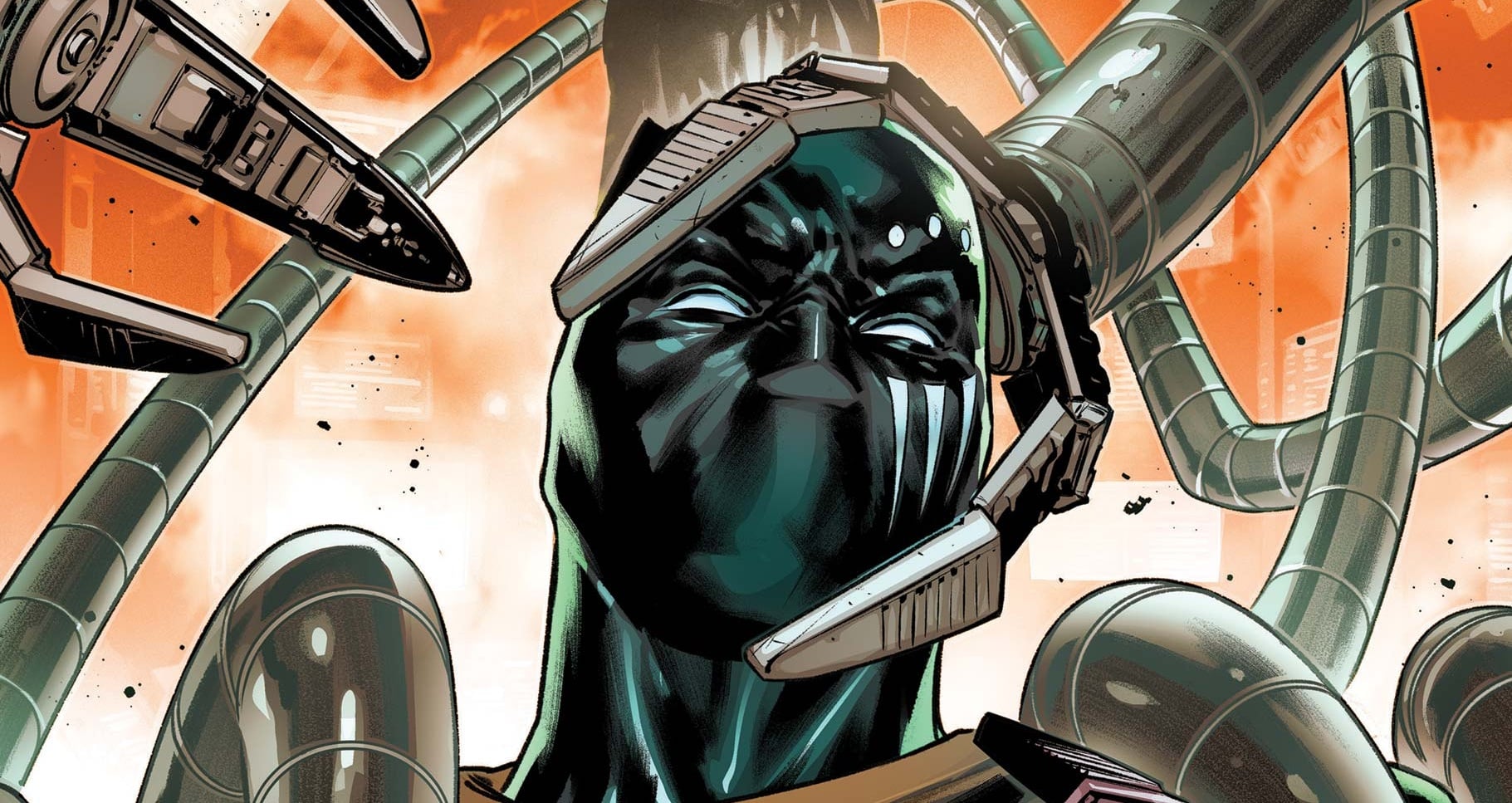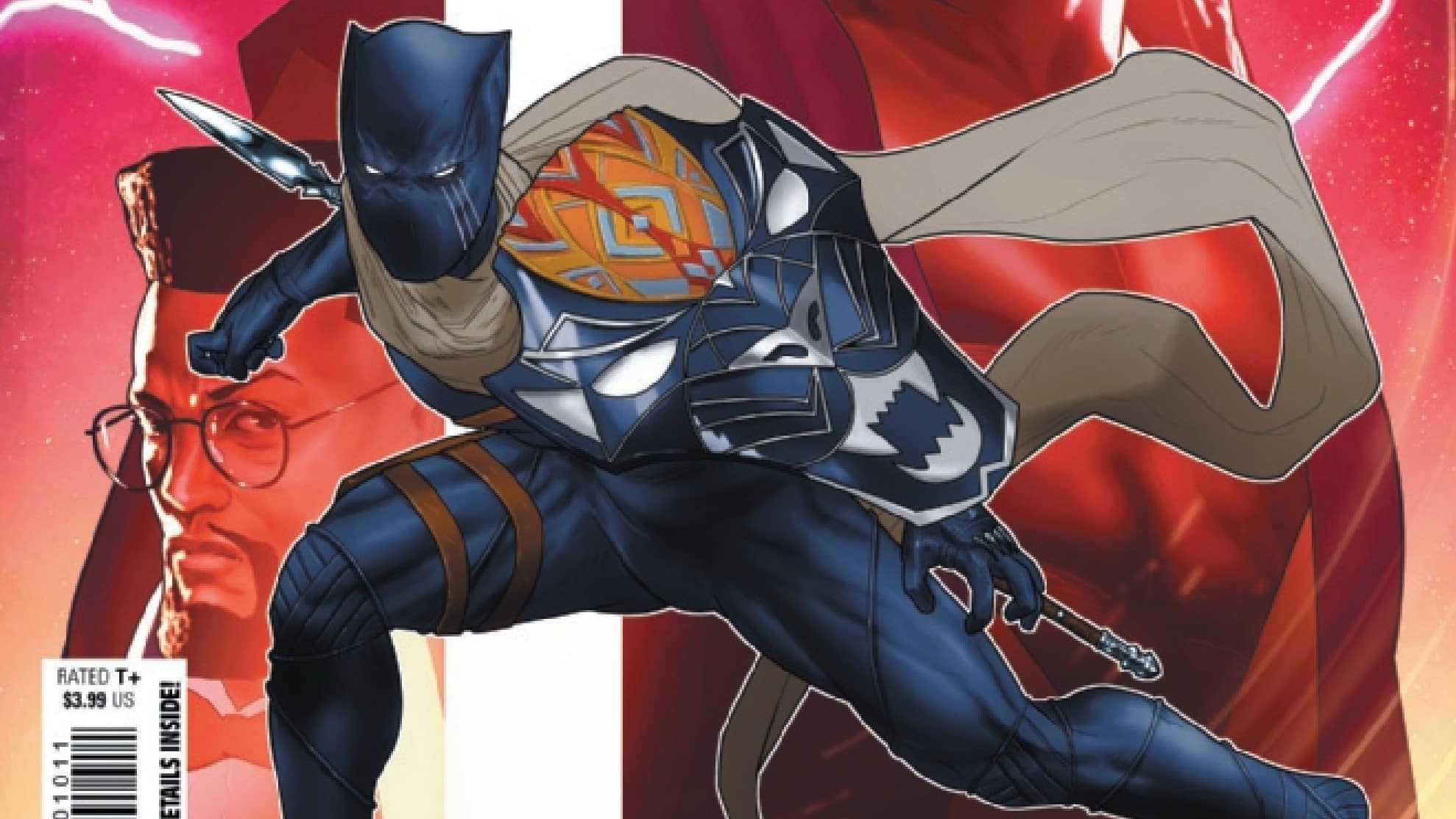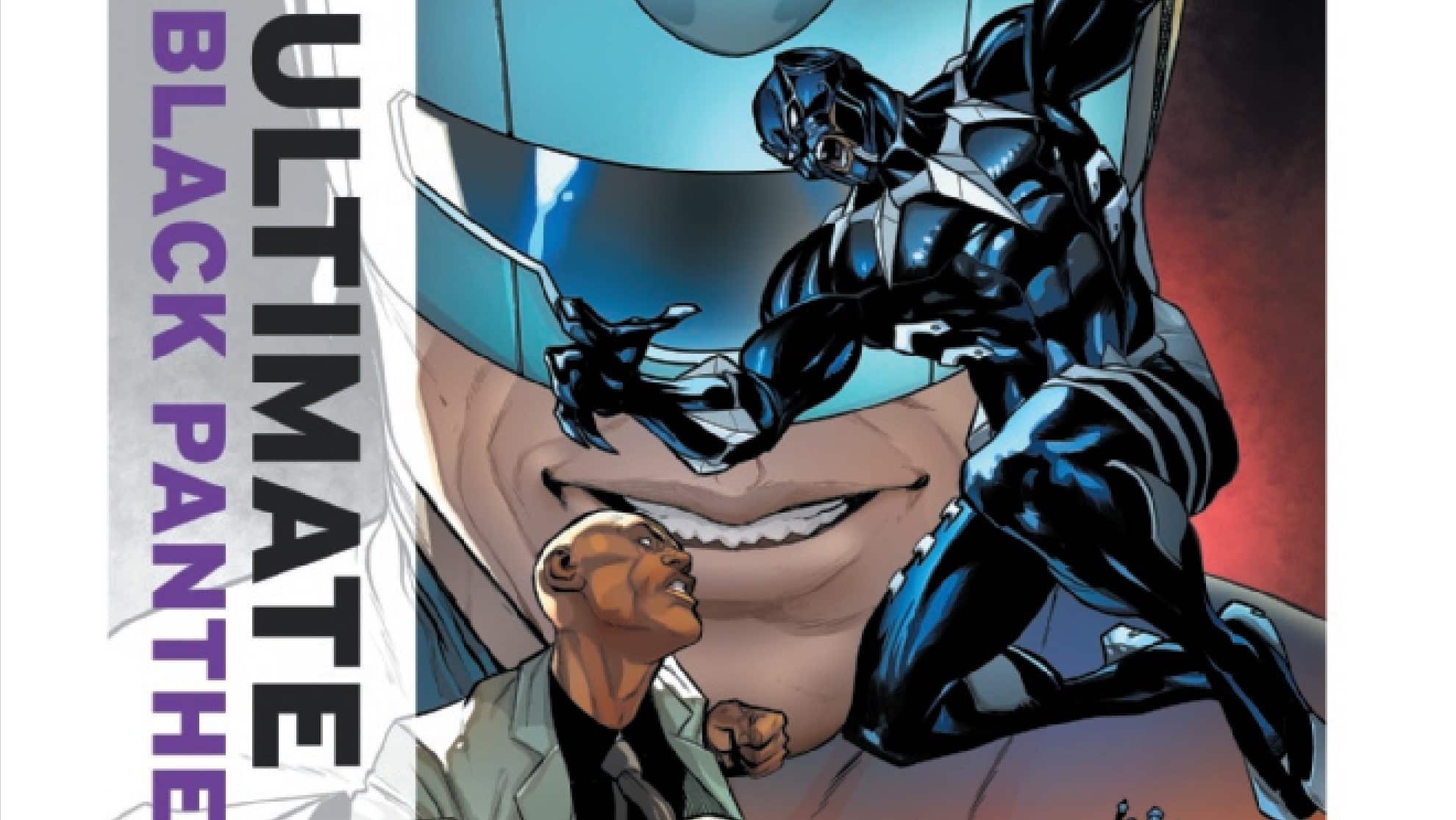Secrets are revealed and loyalties are questioned in Black Panther #5 written by John Ridley with art by Juann Cabal and Stefano Landini, colors by Matt Milla, and letters by Joe Sabino.
Is it a person, or is it the people?
When change needs to happen; when revolutions occur; when the world is in need of saving, who rises to the challenge? The people, collectively, or is one special, almost magical person necessary?
I’ve sometimes lamented that we don’t have a Doctor King or a Malcolm X to lead us in ways (I think!) we need. But any cursory readings about Martin and Malcolm would yield a bevy of other names. Sure, they absolutely bore a disproportionate burden for their actions.
However, they did not ever act alone.
So, again, is it a person, or the people?
This question is central to understanding Black Panther, specifically Black Panther #5, which unceremoniously does away with some secrets while bringing questions of loyalty and leadership to the forefront.
This issue moves quickly – maybe disorientingly so. Omolola is now incarcerated for killing her former partner, Jhai, and for the attempt on T’Challa’s life from the last issue (an attempt that, to be fair, T’Challa absolutely egged on). Defiant, she asserts her innocence from conspiracy while asserting she would – and maybe should – have killed T’Challa.
Not an expert defense, but still.
T’Challa’s secret spy program is now public knowledge, and the public – or at least politicians in the newly democratic Wakanda (including a cameo by Tosin Oduye) – are not too keen on his imperial unilateralism.
And it is here where it’s worth pausing to ask how we got here and where we’re going.
As I’ve noted maybe one too many times before, writer John Ridley’s T’Challa is much more headstrong and arrogant than Ta-Nehisi Coates’ version. And, as I’ve noted before, the democracy that Ridley’s Black Panther derides is literally what Coates’ Black Panther willfully brought about. Here, T’Challa explicitly believes in his own grandeur: he believes he knows best for his people, and they need him and him alone to be strong for the people to survive. This fuels his rationale for everything he’s done in this run: for creating the spies and hiding their existence, for confiding in his militaristic security chief Akili (who, over the course of two pages, goes headspinningly from a confidant and ally to an accuser and foe), and for his escape from incarceration.
T’Challa believes himself above the law. He believes his actions are always necessary. That the people will always be better off, if not thankful for his works.
There is, of course much more to see and learn in this run, and certainly this can (and may…and should!) be turned on its head. But this idea of dependence on a great man (a man who, again, also has an Intergalactic Empire and the Avengers to run) is worrisome at best. Not just for the characters in the comics, but in our world too. His language is not far removed from that of demagogues, both domestic and foreign, who believe themselves above reproach; from the faith and community leaders who hoard resources under a toxic, paternalistic guise.
T’Challa does not sound much different from a dictator. Maybe the path of this arc will teach him better, but too much of what I’ve seen thus far validates his actions.
It’s bad enough to have megalomaniacs in power; the last thing we need is art validating their actions.
And of the art! Panel design here is excellent, expertly divvying up movements and thoughts in a logical, engaging manner. Fights and escapes are crisp and clean, with action easy to follow and decipher. Do I love the faces? Not really (love T’Challa’s beard though!). Do I love the coloring? Yep, again. Because the range of brown skin is lovingly applied.
Be clear: Black Panther #5 is a great comic. Intriguing. Well written. Worth a read (and a re/read of the series to this point)
But greatness never comes alone; it always comes with a cost. As I enjoy the comic, I still worry it validates actions and regimes that neither the 616 universe – or our own – should ever embrace.
A person may bear a unique burden, but a person, no matter how special or regal, should never put their ego above the people. Not in Wakanda, not in America, not anywhere, ever.
A proud New Orleanian living in the District of Columbia, Jude Jones is a professional thinker, amateur photographer, burgeoning runner and lover of Black culture, love and life. Magneto and Cyclops (and Killmonger) were right. Learn more about Jude at SaintJudeJones.com.






